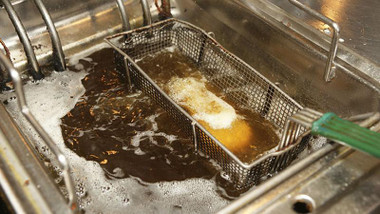In the dynamic landscape of culinary excellence, the importance of fryer oil quality cannot be overstated. A key determinant of this quality is how frequently the oil is changed. Let's delve into this crucial aspect of maintaining an optimal frying environment.
Understanding the Lifespan of Fryer Oil
Fryer oil isn't everlasting. Its usability and effectiveness diminish with repeated heating, exposure to food particles, and time. The life expectancy of fryer oil typically ranges between a few days to a few weeks, depending on the type of oil, the frequency of use, and the fryer's operating conditions.
Identifying the Optimal Time to Change Fryer Oil
Identifying the right time to change the oil in your fryer is more of an art than a science. However, there are tell-tale signs that suggest it's time to refresh your oil.
- Darkening of the Oil: Over time, oil changes its color to a darker hue, indicating it's past its prime.
- Offensive Odor: A rancid smell from the oil is a clear indication that it's time to change it.
- Excessive Smoke: If the oil starts to smoke at regular frying temperatures, it's a sign that the oil has broken down and should be replaced.
- Poor Food Quality: If your fried food isn't as tasty as usual, or it absorbs too much oil, it might be time for a change.
The Frequency of Changing Fryer Oil
In a commercial setting, where fryers are used heavily, oil should ideally be changed daily. However, for less frequent use, such as in a home kitchen, changing the oil every 3 to 4 uses is usually sufficient. It's important to remember that this is a guideline, not a rule, and it's crucial to pay attention to the signs that your oil needs changing.
Steps to Change Fryer Oil
Here are the steps to properly change your fryer oil:
- Cool the Oil: Allow the oil to cool completely to avoid burns.
- Remove Old Oil: Carefully drain the oil into a safe container for disposal.
- Clean the Fryer: Clean the inside of the fryer thoroughly to remove any leftover food particles or oil residue.
- Refill with Fresh Oil: Pour fresh oil into the fryer, taking care not to overfill.
Choosing the Right Fryer Oil
When replacing your oil, it's important to choose the right type. Each oil has its unique smoke point and flavor profile. Canola oil and peanut oil are popular choices due to their high smoke points and neutral flavors.
Maintaining Fryer Oil Quality
Maintaining the quality of your fryer oil not only impacts the taste of your food but also extends the lifespan of the oil. Regularly filtering the oil to remove food particles, keeping the fryer lid closed when not in use, and avoiding overheating can significantly improve the longevity of your fryer oil.
In conclusion, changing fryer oil is not merely a matter of routine, but rather an act of ensuring culinary excellence. Adhering to the appropriate frequency, adopting the correct techniques, and using high-quality oil can make a world of difference to the quality of the fried food and the longevity of your fryer.

 US Dollars
US Dollars
